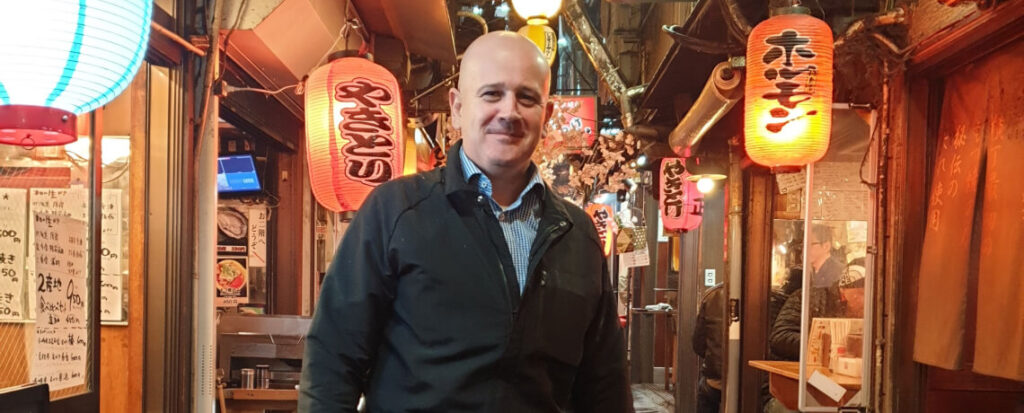
This time last year, few would have imagined the Tokyo Olympics would be moved forward a year, a decision that required a huge logistical effort for the Australian Olympic Committee (AOC).
The AOC is responsible for managing Australia’s summer, winter and youth Olympic Teams, as well as an overall responsibility for the advocacy and development of Olympism in Australia. The AOC operates under the structure of an incorporated association registered in Australia but its charter mirrors that of the International Olympic Committee (IOC), and in effect can be viewed as a sub-committee of the IOC.
Chief financial officer Todd Day says the committee first realised COVID was going to have a big impact on its preparations in February 2020 and with the closing of Australia’s international borders soon after, it became impossible to assemble and send our Team to Tokyo. “When international borders effectively closed, making it impossible to travel, the IOC made the difficult decision to postpone the 2020 Tokyo summer games to 2021,” says Day.
“We initially thought the pandemic would only affect us for a few months, but as we all know, it’s still impacting us. As it stands, this year’s games are still on, but it will be a very different games than what is normally experienced by athletes and all others who love the Games experience. COVID really threw a huge spanner in the works,” he says.
Day says Tokyo 2020 was gearing up to be a very successful games for the Australian Olympic Committee. “On the commercial front, we had the strongest revenue base we had ever had. Then, when the decision was taken to postpone the games, we had to negotiate with over 30 sponsors to keep them on for another year. So revenue we would have otherwise earned last year was pushed out a year.”
The AOC is in a fortunate position of not having lost any sponsors, for which it is very grateful. “Despite common perceptions, we do not receive federal government money to support the Olympic teams, so our commercial program is a significant source of revenue for the funding of our teams,” he says.
Aside from sponsorships and events, the AOC’s other main source of revenue is trust distributions from the Australian Olympic Foundation, which was largely seeded by legacy funding from the Sydney 2000 Olympics. Over time, assets in the trust have grown to $170 million.
<subhead> Fast forward 12 months
At the moment, the AOC is working through how to get athletes and the wider team to Tokyo and back home. The recent announcement by Qantas it may not fly commercially until the end of the year has overlaid another level of complexity.
“Qantas is one of our major sponsors and mostly flies our teams around the world on Qantas commercial flights. We had been planning on Qantas opening routes to Japan in July, but we will be now pushed down the path of chartering flights in and out of Tokyo,” says Day.
This is complicated by TOCOG rules around COVID that limit the amount of time people can be in the Olympic Village. Athletes can fly in a few days before their event and when their competition is over they must fly out soon after. Ordinarily, the majority of the team would fly in a few days before the opening ceremony. That team would stay there throughout the games, even after they have competed. But not this year.
“The logistical complexities around this means we incur significant additional costs and planning in chartering flights and accommodating people, so there’s a lot of pressure in terms of financial management. We are one of the largest National Olympic Committees, so we have resources and expertise to manage this. But a number of national Olympic committees do not have our size and structure and the postponement has been tough on them, I really feel for them,” he adds.
When it comes to COVID vaccinations, Day says it’s not mandatory, but will be strongly recommended. Athletes have to be tested for COVID three days before they leave for Tokyo and regularly when in Tokyo. Under current rules they then must quarantine for 14 days when they arrive back in Australia. “It’s quite an ordeal for all those travelling,” Day says.
While Day would normally travel to the Olympics to run an initiative called the Out of Village Program, which supports commercial partners, athletes’ families and friends, COVID restrictions forced the cancellation of this program. So this year, Day will remain in Australia supporting a small team back here.
<subhead> Love your work
Day is passionate about working in sport, and has spent the last 15 years working in the industry.
“In sport, you work with people who are passionate about what they do, and with a product that endeavours to make a difference in the community, and I just find that really interesting. It also gives me an opportunity to be across a whole gamut of different areas. My title might be CFO, but I also get heavily involved in the commercial and other operational areas of the business.”
Right now, Days is focused on supporting Australia’s Olympic team to get to Tokyo and making sure the AOC has the funds to achieve this. He is also working with the AOC to support Australia’s bid for the 2032 Olympics, which has a very strong chance of being held in Brisbane.
The way cities bid to hold the Olympics has changed since the days of the Sydney Olympics bid, when thousands of people congregated around Australia, staying up in the early hours of the morning to hear the announcement the city had won the games. Now, when a city wishes to bid for a games, it expresses interest and the IOC and the city then undertake a series of dialogues. At a point in time, that dialogue can move to a “Targeted Dialogue” stage at which point the IOC will cease dialogue with any other interested parties. Brisbane is now in this Targeted Dialogue stage with the IOC and there is a very strong chance Brisbane will pass this stage and be announced as the host of the 2032 Olympics. “We are hoping for a decision to be made a few days before this year’s Tokyo Olympics,” he says.
Let’s hope when the Brisbane Olympics comes around, the pandemic will be under control and the process will be vastly different to this year’s Olympics.
This story first appeared in CFO Magazine
